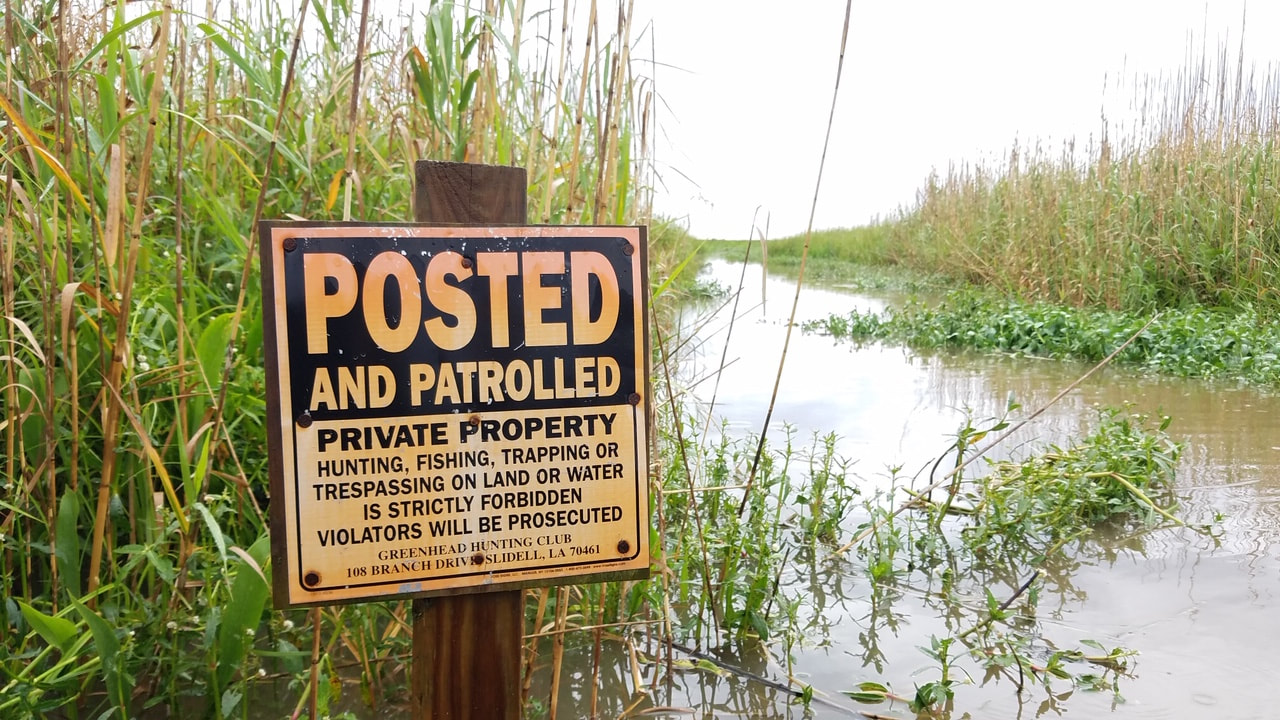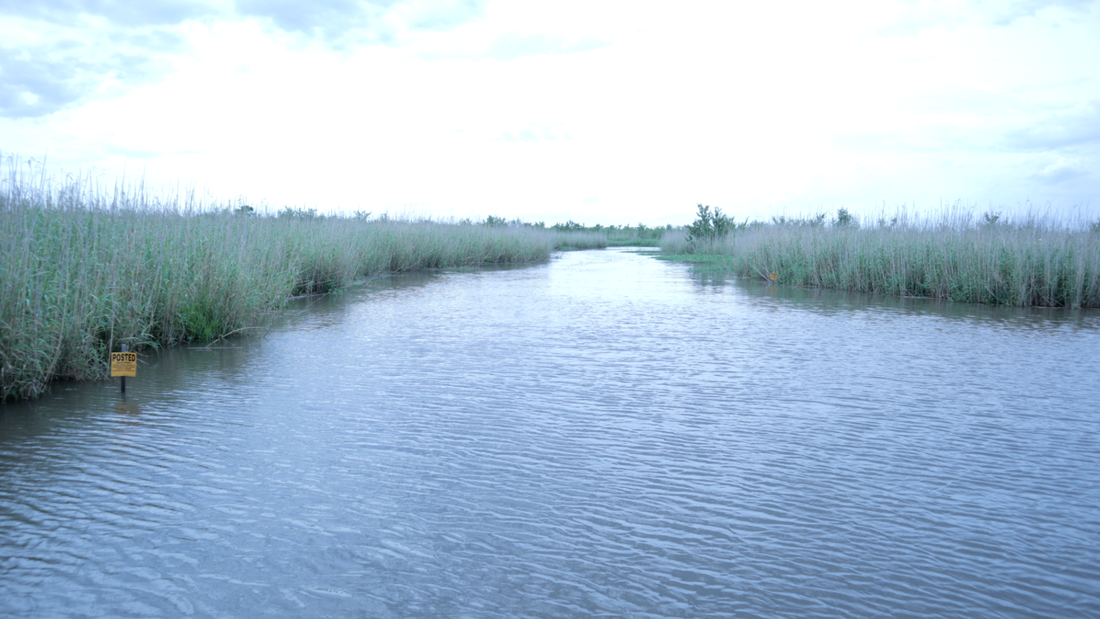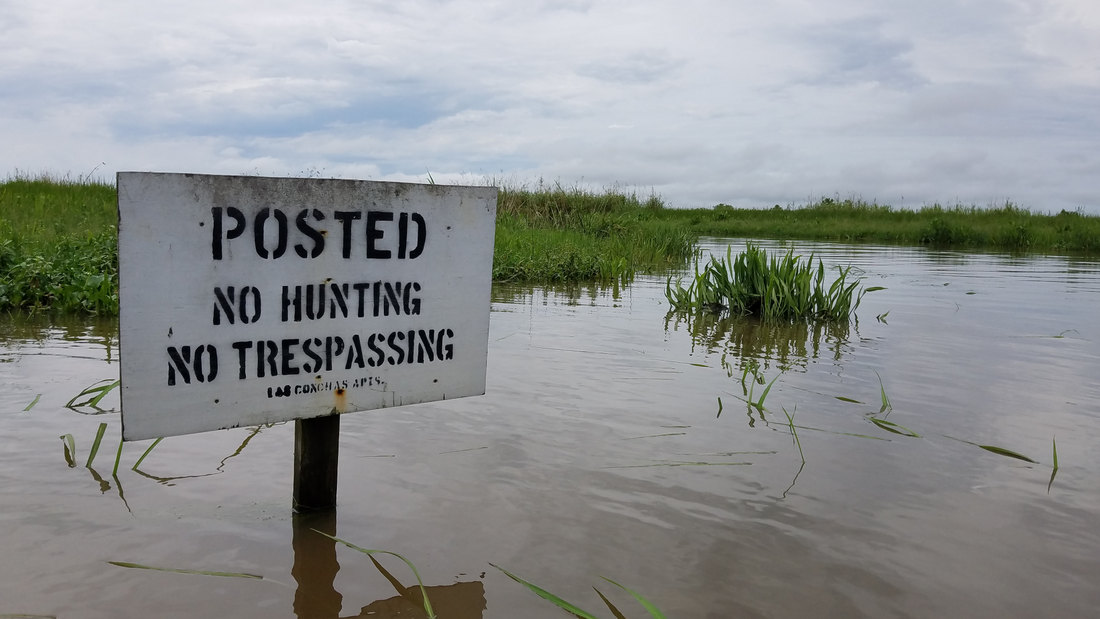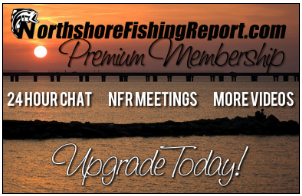 Keith Lusher
Keith Lusher Picture it! It’s a beautiful spring day, the bass spawn is in full swing. You’re trolling the shoreline along your favorite river you spot a dock about 30 ft down the shoreline. You make a long cast to it. As you get closer to the wharf a gentleman walks out and begins to tell you that you can’t fish here because it’s private property and that anything 15 feet off of the shoreline is off limits. To the average fisherman, the scene I’ve laid out for you seems laughable. But it’s exactly what happened to Chris Basey of Covington, Louisiana.
Chris was fishing the a backwater lake near the Pearl River. It’s a stretch a camp docks that he’s been fishing since he was a kid. When he was asked to leave by one of the owners of the camps. “He told me that there was nothing stopping someone from leaving the boat and coming on to his dock to vandalize it,” Basey says. It’s becoming a far too frequent episode as land owners are learning about their newfound “Property” all thanks to Louisiana’s backward law that grants landowners the right to own any water adjacent to their land.
To understand how the situation has escalated to this we need to go back to 1988. It was then that the U.S. Supreme Court ruled in Phillips Petroleum v. Mississippi that all navigable waters affected by the ebb and flow of the tide are public and cannot be owned. In what seemed to be a clear win for sportsmen who fish public waters has slowly been eroded, literally. A large portion of Louisiana’s marshes hold mineral rights that are owned by oil and gas companies. Through coastal erosion, that land was being covered by water and in turn these companies were losing the rights to the land. In the court ruling it was established that the states were left to define “navigable waterways,” and herein lies the problem. In 1992 Act 998 was passed. In it the Louisiana Legislature dictated that “navigable waterways” shall be defined as waterways which were used for commerce in 1812, allowing other water bottoms and the water that sits above them to be owned. Since then, property owners have grabbed on to Act 998 that not only gives them the right to own waterways, but even grants them the ability to restrict access with gates to areas in which recreational anglers have fished all their lives.
What was initially a problem for anglers that fished the waters around the pipeline canals that were owned by gas companies is quickly becoming a problem for everyone who fishes everywhere in South Louisiana.
Chris was fishing the a backwater lake near the Pearl River. It’s a stretch a camp docks that he’s been fishing since he was a kid. When he was asked to leave by one of the owners of the camps. “He told me that there was nothing stopping someone from leaving the boat and coming on to his dock to vandalize it,” Basey says. It’s becoming a far too frequent episode as land owners are learning about their newfound “Property” all thanks to Louisiana’s backward law that grants landowners the right to own any water adjacent to their land.
To understand how the situation has escalated to this we need to go back to 1988. It was then that the U.S. Supreme Court ruled in Phillips Petroleum v. Mississippi that all navigable waters affected by the ebb and flow of the tide are public and cannot be owned. In what seemed to be a clear win for sportsmen who fish public waters has slowly been eroded, literally. A large portion of Louisiana’s marshes hold mineral rights that are owned by oil and gas companies. Through coastal erosion, that land was being covered by water and in turn these companies were losing the rights to the land. In the court ruling it was established that the states were left to define “navigable waterways,” and herein lies the problem. In 1992 Act 998 was passed. In it the Louisiana Legislature dictated that “navigable waterways” shall be defined as waterways which were used for commerce in 1812, allowing other water bottoms and the water that sits above them to be owned. Since then, property owners have grabbed on to Act 998 that not only gives them the right to own waterways, but even grants them the ability to restrict access with gates to areas in which recreational anglers have fished all their lives.
What was initially a problem for anglers that fished the waters around the pipeline canals that were owned by gas companies is quickly becoming a problem for everyone who fishes everywhere in South Louisiana.
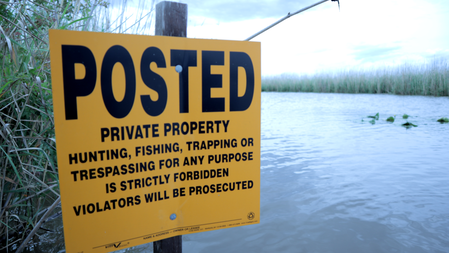
Basey has been fishing the rivers and tributaries on the Northshore of Lake Pontchartrain and admits that he’s heard about the problem years ago but since it wasn’t a problem for him he didn’t give too much thought to it. “Now it’s here and it’s ugly!” he says. While he’s seen landowners staking claim to the water that runs along their land, by far the worst is what he’s seeing on the Pearl River. “If you’re heading south from Oyster Bayou, almost every cut off of Salt Bayou has a private property sign on it now. It’a ridiculous amount of water that is un-fishable,” Basey says. The frustrated fisherman adds that approximately 80% of the bayous from Hwy 90 heading south to the Rigolet’s is now private water. Not only is the loss of fishable waters affecting the recreational fishermen, the tournament anglers are being affected. The East Pearl River is the most heavily fished tournament location on the Northshore.
Now Chris says he has been forced to purchase a Mississippi fishing license so he can fish the Mississippis side of the Pearl. “There are no signs on that side. Everything is public water,” he says. Chris fears that the problem we’re seeing right now is leading to a bigger problem, and with time, all waters in Louisiana will be private. “If we don’t do something about this we’re going to lose everything. These landowners are going to claim all the water and we’re going to have to pay to fish. Everything’s going to be private!” he says.
